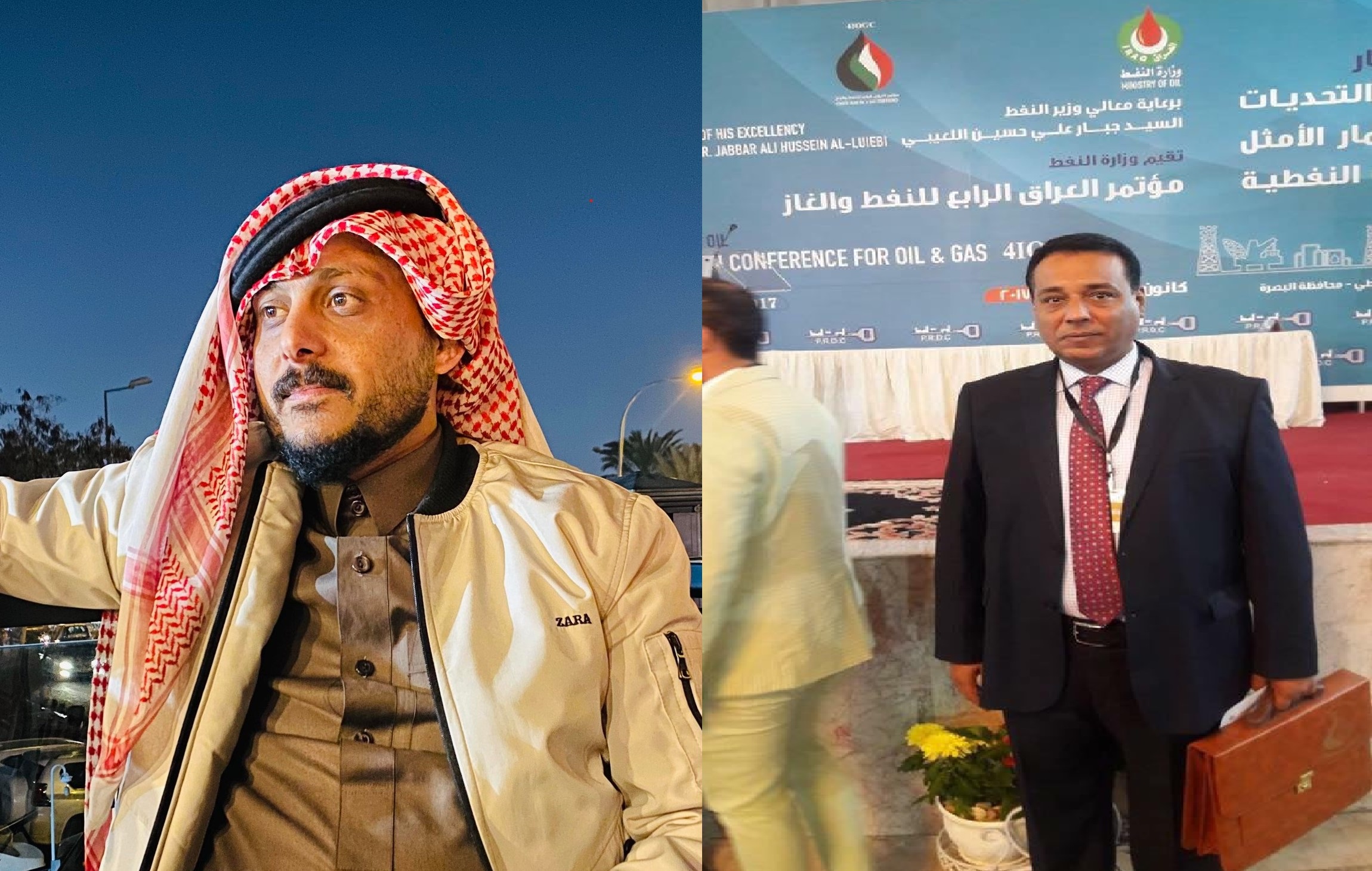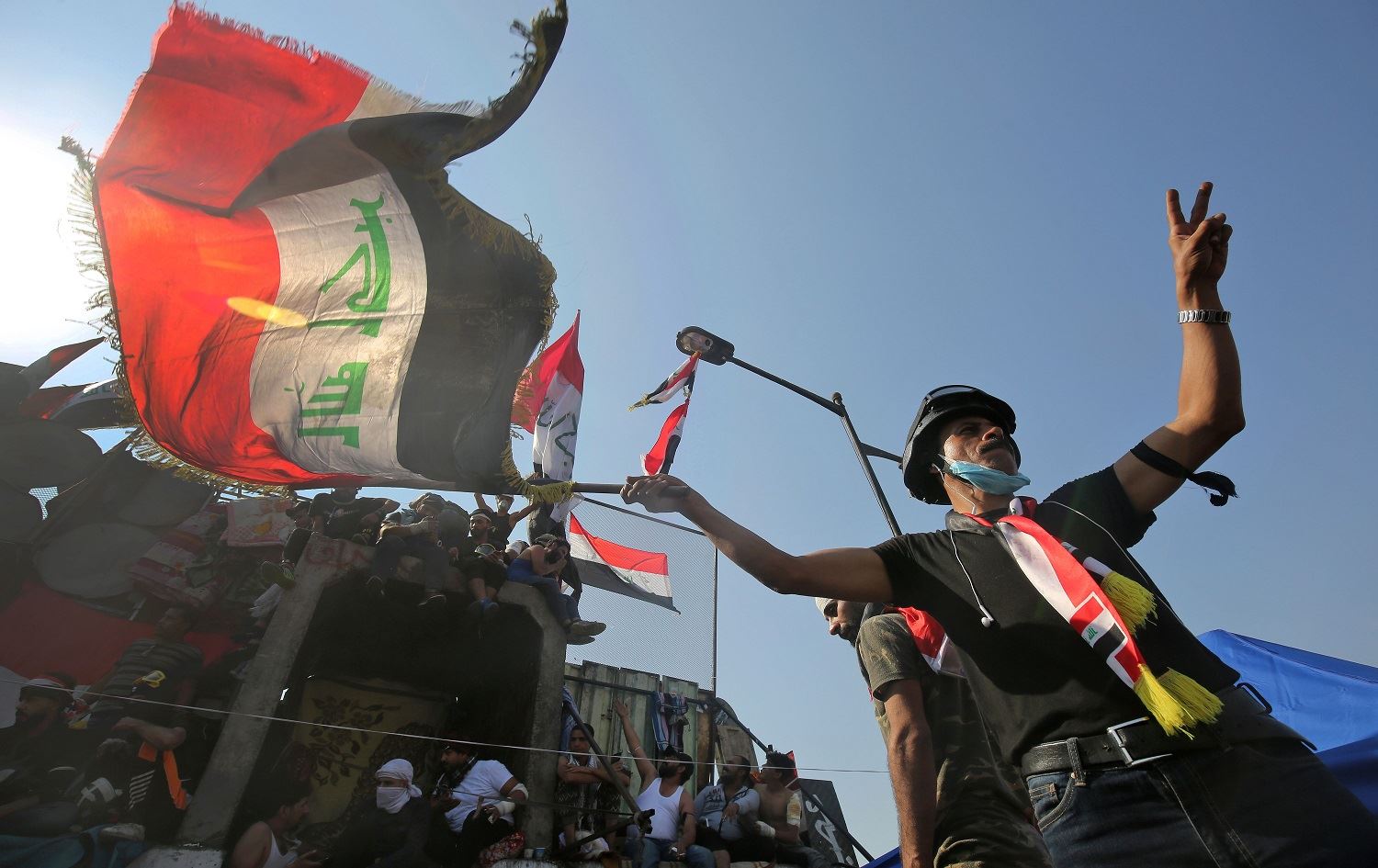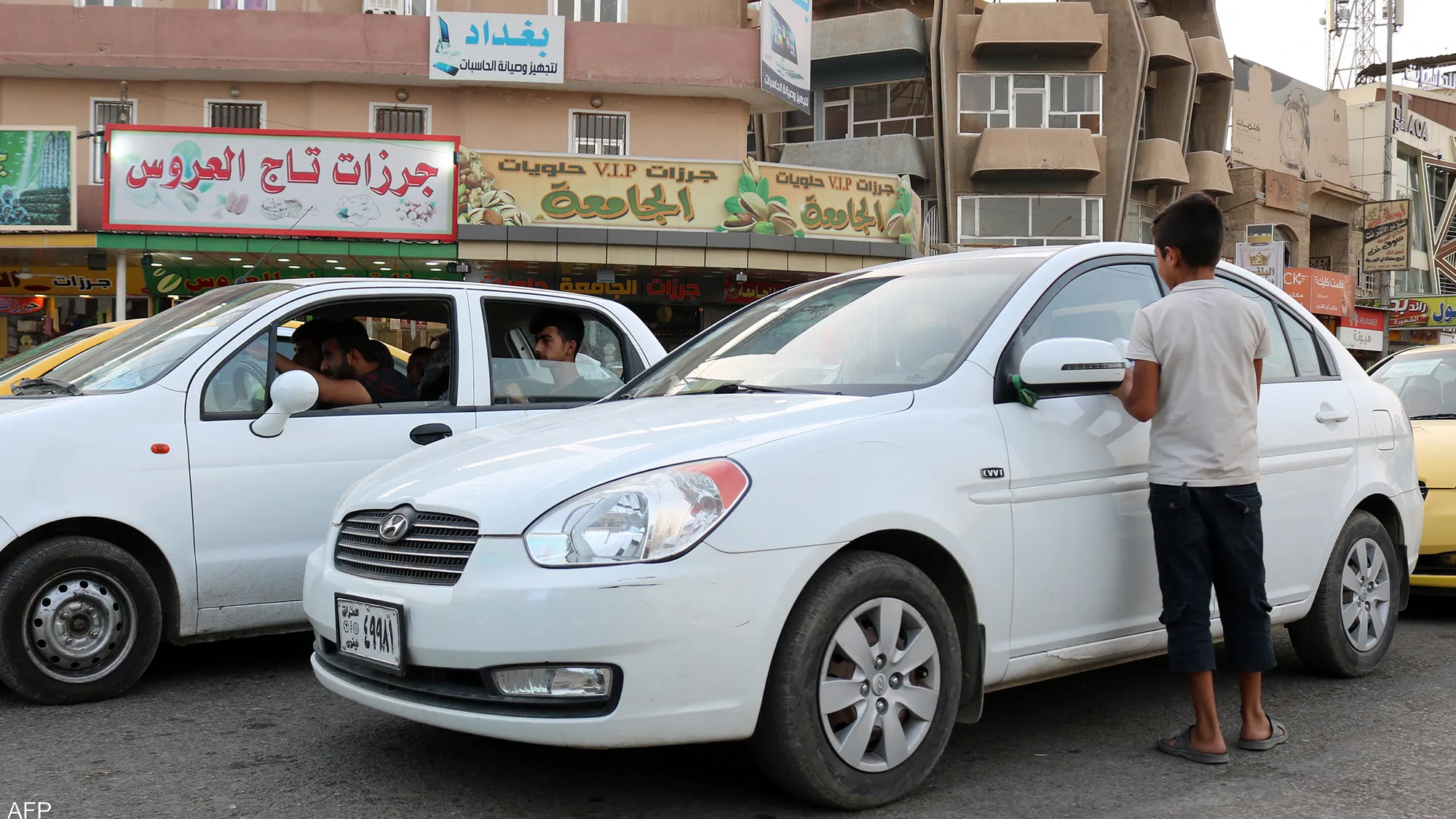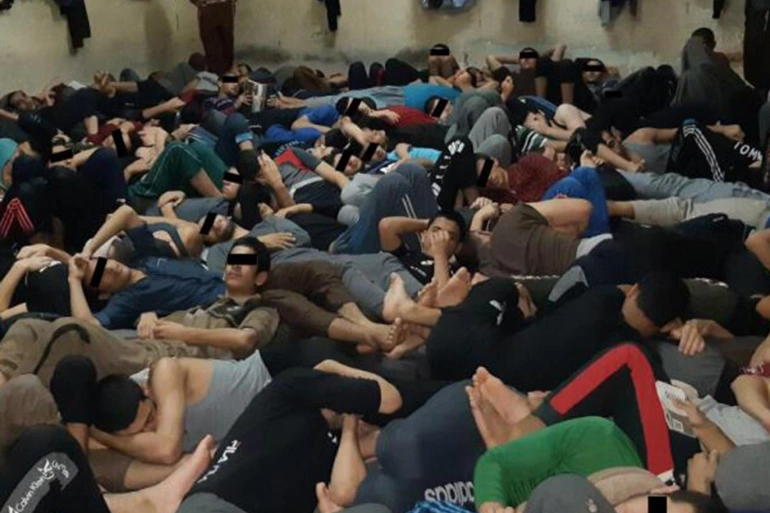According to the Iraqi Observatory for Human Rights, recent prosecutions and court judgments have been issued against individuals who have criticized public officials and government employees for their job performance.
After disputing the legitimacy of a government contract to purchase "trash containers" signed by Governor Ammar Jabr, a court in Salah al-Din Governorate convicted activist "Yazid al-Hassoun" to 3 months in prison.
Al-Hassoun stated that the priority should be the rehabilitation of this province, which was largely destroyed during the war to liberate it from ISIS rule years ago, and whose ruins are still dispersed and thousands of citizens have been displaced.
As a result, Governor Ammar Jabr filed a lawsuit against this activist.
At the same time, "anti-crime" forces in Basra arrested "Ahmed Yahya Issa," a professor of chemistry at Basra University, after he criticized on Facebook "the focus of the security services in maintaining trivial issues, abandoning major crimes and cases of robbery and theft practiced by influential gangs and militias, some of whom infiltrated important security agencies".
According to activists and writers, Basra Police Commander Major General Ali Adnan filed a complaint against a university professor whose photo was published and then detained by "Anti-Crime Division" in Al-Maaqal district, even though it was not competent in opinion-related issues, according to legal experts.
Sections of the Iraqi Penal Code of 1969 provide for fines, imprisonment, and even execution for those guilty of "insulting" the President of the Republic, Parliament, or the administration.
According to legal experts who spoke to the Iraqi Observatory for Human Rights, there is a conflict between those paragraphs of the Penal Code that was set decades ago by governments eager to restrict freedom of expression and harass their opponents and anyone subject to criticism, even execution after sham trials, and the constitution that was established after 2003 which guarantees freedom of expression.
They added that the provisions of Articles 81 - 82 - 83 - 84 of the Penal Code of 1969, which are 201 - 202 - 210 - 211 - 215 - 225 - 226 - 227 - 403 - 433 - 434, are "loose and can be changed according to personal desires to expose the accused person to harsh punishments that are beyond proportion to the severity of their breaches and, if any, the harm they cause.
According to journalists and activists, the same documents were used to pursue their colleagues in previous years, particularly during and after the October 2019 protests.
Hundreds of community activists, politicians, and journalists were compelled to flee Iraq after being hunted by the authorities or assassinated by an "unidentified party," as the security forces say, and their case records were suppressed.
Some of them appealed to the Iraqi Observatory for Human Rights and presented fabricated evidence to back up their claims. They spoke of raids on their families' houses in Iraq in search of them, as well as "targeting" some of them with bombs "simply because their fleeing sons expressed political and sociological viewpoints and attacked the authorities, ruling parties, and public personalities' performance".
According to an official with the Observatory's monitoring network, the prosecution of persons of conscience in Iraq is not restricted to a single city, but extends to other cities, including the autonomous area of Kurdistan, and there are hundreds of documented examples in this regard.
On January 10, 2022, the Iraqi Observatory for Human Rights urged the new members of parliament to pass four laws, including freedom of expression and peaceful assembly, as well as freedom of access to information, as an absolute necessity for creating a conducive environment for public life and demonstrating the existence of a democratic system that allows people, particularly journalists, access to the information they require.
The Observatory said in its statement then: "Given the continuation of the protests, albeit intermittent, and the intensification of criticism directed against the authorities and political parties due to corruption and poor services, the need to legislate the Law on Freedom of Expression and Peaceful Demonstration. The executive authorities have always used the absence of this law to arrest activists and participants in protests.
The Iraqi Observatory for Human Rights also denied claims made by some members of Parliament in past sessions concerning the "presence" of conflicts between the four laws and any religious, sectarian, national, or ethnic beliefs.
Today, the Iraqi Observatory for Human Rights reminds us that the absence of these and similar laws in the new parliament is unjustified, especially given the presence of some members of the new parliament whose slogan is "defending freedoms and striving to create legislation that organizes life and protects human rights,". It is important to note that those legislators have a significant parliamentary representation that allows them to do so.
The Observatory advises all authorities to accept criticism, rather than harass and persecute those who voice it peacefully, and to respect their human right to assess the quality of services offered to them and identify problems that they observe which is self-evident in democratic countries.
The Iraqi Observatory for Human Rights urges the competent authorities to resolve the cases and release the detained "Yazid al-Hassoun," who is a Salah al-Din activist, and "Ahmed Yahya Issa," who is a professor at Basra University, as soon as possible.
When dealing with people whose cases are related to peacefully expressing an opinion free of incitement to hatred, killing, or violence against others, the Observatory also calls on security authorities to adhere to standards, official work regulations, and laws, rather than equating them with those accused in criminal cases and photographing them in places of detention and investigation while they are tied and not issued against them. There has yet to be a court decision.




